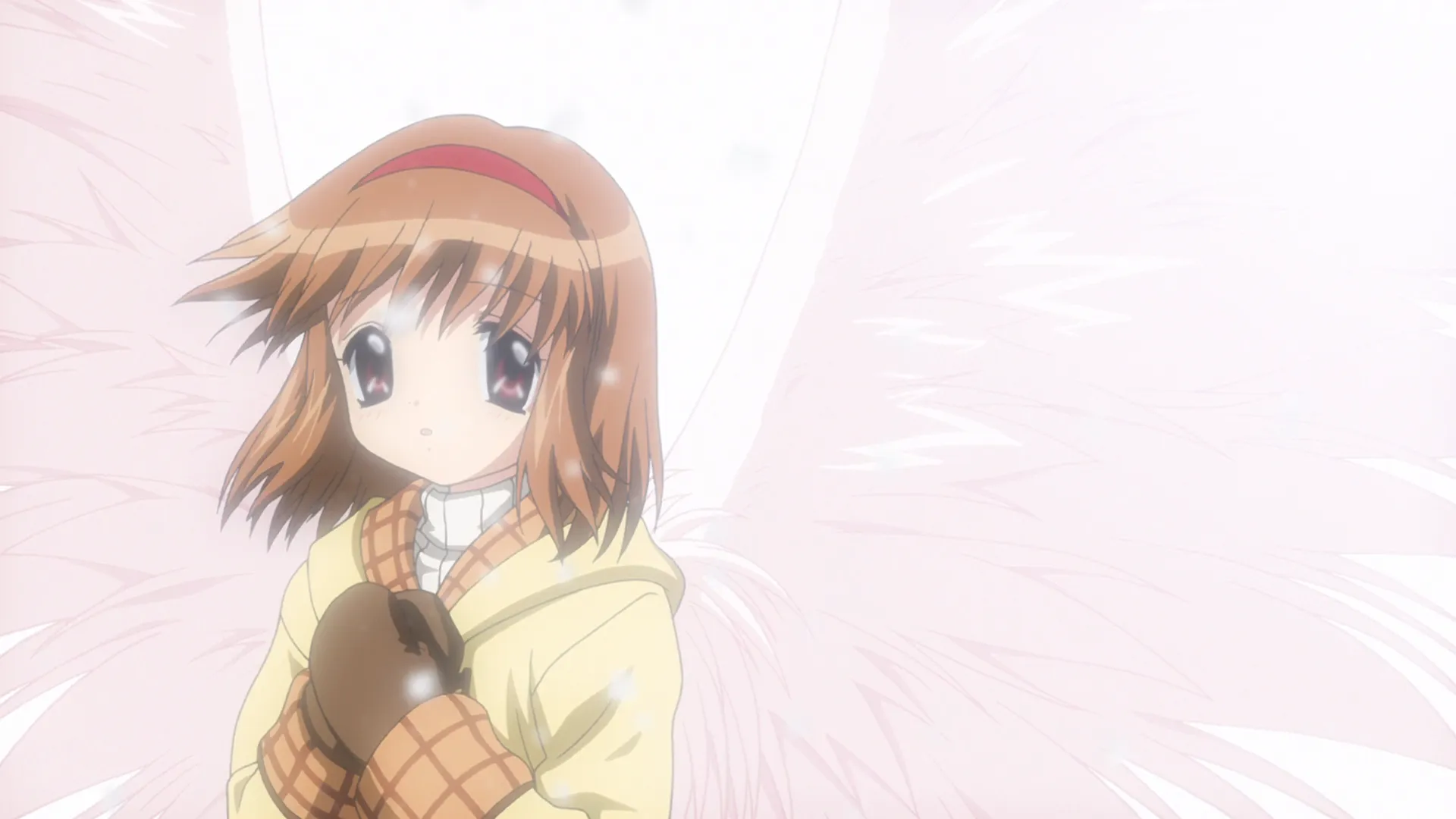
My Problem with Kanon
Have you seen Kanon? It’s the Kyoto Animation adaptation of a Key visual novel with supernatural elements, focusing on the dramatic interactions between the main hero and a number of heroines, and please, stop me once you’re reminded of, well, Clannad? I don’t want to focus on comparing Kanon and Clannad here, so I’ll just note that Kanon, Clannad’s predecessor as both a visual novel and as an anime, almost never outshines its more famous younger sibling.
Instead, however, I’d like to focus on Kanon’s contents a little: specifically, its ending. Without explicitly spoiling what happens, I would describe it as “unsatisfying”—unsatisfying because of how quickly it goes by, how absurd it is, and how it is clearly the product of a show that has driven itself into a corner.
Let’s start with pacing. Kanon’s ending is fast, because it needs to be. In a sense, the pacing problem of the last episode comes from the quality of the pacing in previous episodes. One of the things I loved most watching Kanon was its willingness to take it slow, and let the viewer’s emotions brew alongside those of its characters. Unfortunately, this leaves the last episode with a lot to resolve, and very little time to do it. As a result, it feels like a high-speed montage of emotional moment after emotional moment, each lacking the time to actually sink into the viewer and leave an impact.
The absurdity of Kanon’s ending comes from a different, more fundamental place. It comes from the show’s view that, in a capricious world, where each of us are powerless in the face of most suffering we come into contact with, the only cure is to pray for a miracle. And while I think there’s an understandable desire for such a world to exist, it makes for unsatisfying storytelling.
You see, when you assert that the protagonists are powerless, the only thing you can show is characters addressing and working within that powerlessness. You don’t get a great struggle; you don’t have a villain. This is the storytelling model Kanon adopts for most of its dramatic arcs, and most of the earlier resolutions are based in this fundamental sense of powerlessness. In my opinion, this is where Kanon is at its best: addressing the struggles of powerlessness with empathy and care.
In the end, however, Kanon does something very cowardly. Even as it explores that sense of powerlessness—even as it seeks to answer the discomfort and uncertainty that comes with powerlessness—it decides it needs a happy ending.
It fails to stick to its own convictions. It cheapens the tears of its characters, and denies the very inevitability of death it had used as a dramatic tool. In the name of a happy ending, it lets “miracles”—in its own words!—sweep away every tragedy.
As a result, its remarks ultimately feel a little hollow to me. How can I listen to the advice Kanon gives me, if it’s too scared to follow through on them? In facing one’s mortality, Kanon provides no comfort, because, in the end, it’s scared of its own premise. So instead of accepting the fortunes it set up for its own plot, and its own characters, it bets on a miracle, and rewards itself.
Kanon’s ending is unsatisfying, indulgent, and provides neither hope nor despair. It is a coward’s ending. And for that reason, it can only leave a poor taste in my mouth.